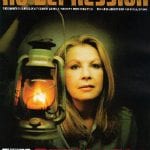Cash Brothers – Coming together after growing apart
If there’s an official formula for sibling music-making, it goes something like this:
Brothers are raised harmonizing as soon as they can speak; appear on talent shows dressed in retrospectively embarrassing matching wardrobe; gain acclaim and fame for their sympathetic harmonizing; fly apart in a whirl of finger-pointing; embark on solo careers amid speculation that one day, they’ll get it back together to milk the reunion circuit.
Toronto-based brothers Andrew and Peter Cash skipped that whole chapter in the rock rule book. Or at least, they read it backwards. After a life of making music disconnected from each other, they’ve only recently recognized the potential of making music together.
“It is irresistible,” Andrew Cash concedes of the mythology surrounding singing siblings. “Because we’re brothers, and because we sing together, there’s something about that that draws people.”
The Cash Brothers’ new release, How Was Tomorrow, is drawing plenty of attention and acclaim for its fine, understated songwriting and moody vocal blend. For anyone who has witnessed their individual efforts on the Toronto music scene for close to 20 years, though, it’s a wonder they took so long to recognize the potential in their partnership.
“My feeling is, first of all, no one predicts timing on these things in music. We could have done this 10 years ago, and it might not have worked,” says Andrew, as Peter, 20 months his junior, nods in agreement.
“I think it is just luck and timing. It is just a happy accident, in a way. I think we found ourselves out of the bands we had been in for a long time. We had the time.”
Adds Peter: “When we decided that we would finally do this, it all kind of happened. It didn’t happen quickly, but it did happen at a natural pace. There was no sense getting impatient about it. If things were going to happen, they were going to happen.”
Growing up in Toronto, Andrew was the first to get deeply into music. He dropped out of high school in the early 1980s to devote himself to his trio, L’Etranger. After three EPs of harmony-rich, Jam-influenced new wave, the group busted up, and Andrew signed with Island Records’ Canadian division, where he made a splash with two fine albums (1988’s Time And Place and the Don Dixon-produced 1989 effort Boomtown).
While still in his teens, Peter moved out of the Cash family home and into a house Andrew was sharing with friends. “He moved out shortly after I moved in, but he left a guitar there, which is where I started to play the guitar,” Peter recalls. “It was just an old, beat-up guitar, and for me, that was the start of it. I started learning how to play.”
Peter began writing his own songs and joined forces with Andy Maize (who had served as backup singer in Andrew’s touring band) and guitarist Josh Finlayson to form what would become the Skydiggers, a cornerstone of the Canadian roots-rock scene.
Peter grew disaffected with touring and, after releasing four records with the band, quit the Skydiggers after 1995’s Road Radio LP, while Andrew’s deal with Island got caught up in label-merger politics. Andrew recorded a superb 1993 indie album titled Hi, then two years later released an album with his touring band under the name Ursula.
By 1996, both brothers were at loose ends, and decided to try working as a duo. They released their debut disc, Raceway, independently in 1999, followed by Phonebooth Tornado last year. They hooked up with Rounder Records affiliate Zoe for How Was Tomorrow, which came out in April and marks the Cash Brothers’ U.S. debut.
The very thing that likely postponed their union is what makes it work so well: They are a startling study in contrasts. Andrew, who specializes in upbeat fare such as “Take A Little Time” and the vivid working-poor sketch “Night Shift Guru”, is voluble and exuberant. Peter is stoic and reticent, and his best work, particularly the scorching track “Nebraska” (a tribute to the soothing power of Bruce Springsteen’s landmark acoustic opus) embodies a profound melancholy.
“We developed as songwriters independent of each other. We have a lot of respect for each other as songwriters,” Andrew says. “There’s a lot of communication and trust that you don’t actually get very often. Bands that have been together since they were 12 years old — the Rolling Stones or whoever — they’ve known each other that long and it is important.”
“I have been enjoying it more than ever. We haven’t rushed anything, and here we are,” says Peter.
Adds Andrew: “We can sing together in a way that, we might be out of tune, but it can sound okay. There’s a couple of songs on the album where I can’t tell who is singing what. When I listen to the record, I just can’t tell.”




